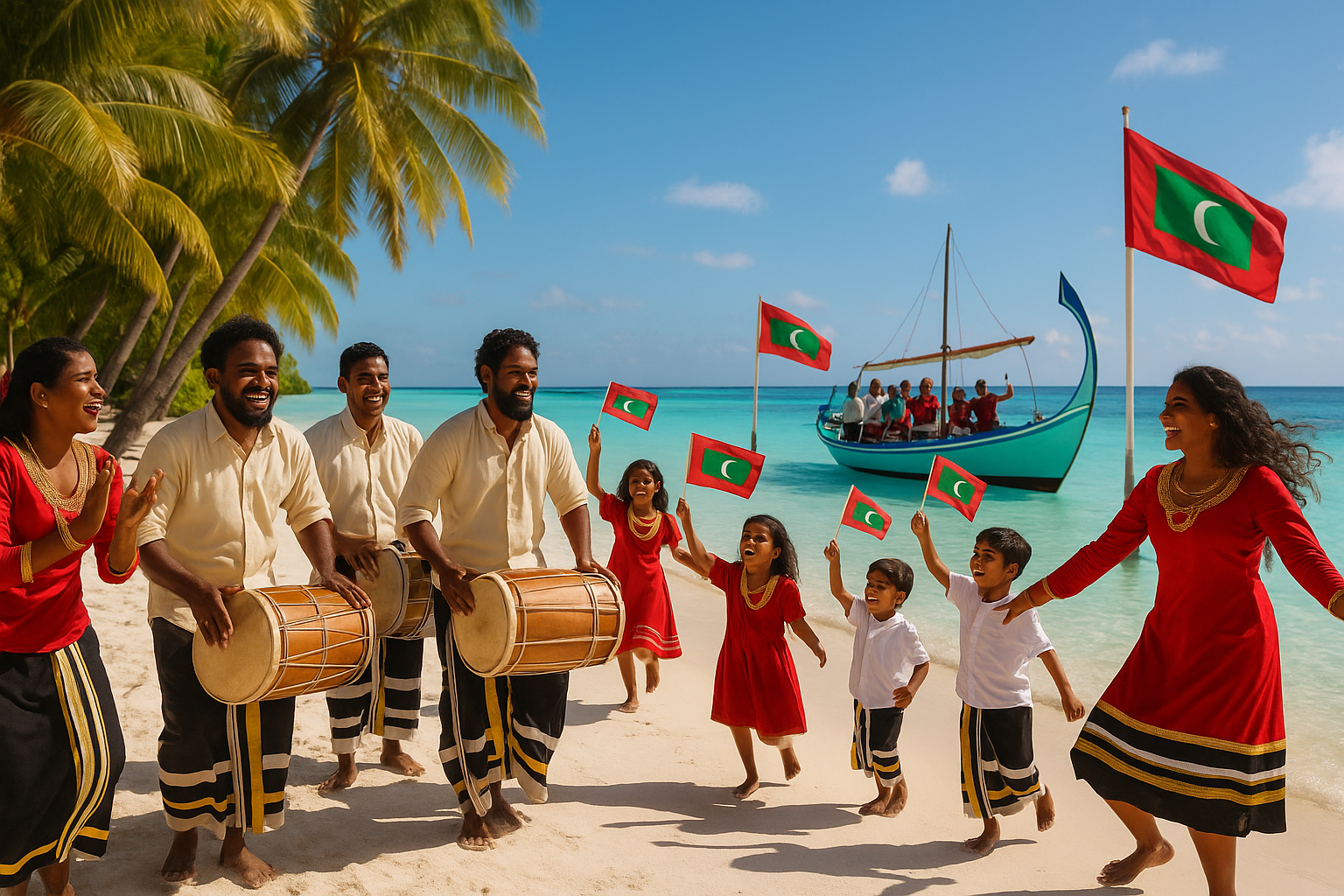Maldives Day
On July 26th, 1965, the Maldives officially became an independent nation, ending 78 years of British protectorate status. This moment marked the beginning of full self-rule for this island nation in the Indian Ocean. The Maldives is a nation already rich with centuries of sovereignty before colonial involvement. Known for its crystal clear waters, coral reefs, and serene atolls, the Maldives is more than a tourist destination.
These islands hold a vibrant culture built on maritime traditions, Islamic heritage, and deep community bonds. Independence Day is a joyful celebration across the islands, filled with flag-raising ceremonies, cultural performances, and national pride. July 26th is a tribute to identity, stewardship, and the quiet strength of a people surrounded by water, but grounded in unity. |
 |
Maldives National Day, known as Qaumee Dhuvas, commemorates the expulsion of Portuguese invaders in 1573 and the restoration of independence under national hero Muhammad Thakurufaanu. Though small in size, the Maldives has long stood as a symbol of sovereignty fiercely defended and deeply cherished.
Scattered like pearls across the Indian Ocean, the islands of the Maldives are more than a paradise, they are a testament to a people rooted in faith, resilience, and unity. National Day is a solemn and proud occasion to honor those who reclaimed the nation’s freedom and to reflect on the strength it takes to remain sovereign across centuries. The spirit of independence endured in the rhythm of the sea, the prayers echoing from coral mosques, and in the hands of generations building futures. This day reminds every Maldivian that freedom is not simply inherited but is protected, preserved, and passed on with love.
